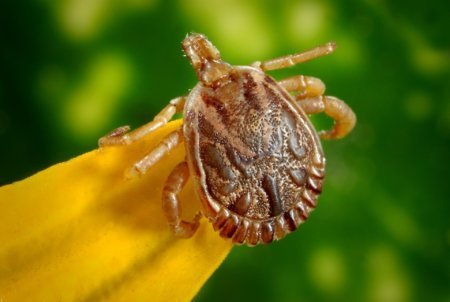Being stuck in the woods during a survival situation is bad enough! Adding the annoyance and possible diseases caused by insects can add a layer of stress that you just don’t need.
The following items are all great ways to keep bugs off of you in a survival situation:
- Cover exposed skin with oil or rendered fat
- Rub the juice from wild leeks or onions on your skin
- Crush lavender flowers and rub the oil on your skin
- Cover any exposed skin with mud, reapply as needed
- A smokey fire will also drive away biting insects
These are some of the best survival bug repellents that you can make in a survival situation. They all require just one component and take very little time to put into use.
What is a Natural Way to Repel Bugs?
Natural bug repellents are available pretty much where ever you go. You just need to know that they usually aren’t going to be more effective than modern bug repellents that you can buy for just a few dollars in the store.
However, in a survival situation, these are definitely better than nothing!
One of the best ways to keep bugs from biting you is by applying oils or rendered fat on your exposed skin. This can clog insects mouthparts and will gum up their legs. It can also simply provide a physical barrier between you and them that they can’t bite through.
Wild onions and leeks make another great repellent. You can simply rub them together in your hands, breaking them up and freeing the oils and juices inside. Then, simply rub it on your skin to help keep bugs away.

Lavender flowers will also keep bugs away. You use them the same way that you would with leeks and onions, rub them in your hands and smear the oils on your skin. This also smells a lot better.
Lemon eucalyptus oil is another natural repellent. It probably isn’t going to be something that you’ll be mixing in the field but it’s something you can throw in your survival kit before you need it.
In a study, a 32% lemon eucalyptus oil mixture was 95% effective for 3 hours and a 40% deet mixture was 100% effective for 7 hours. If you have to choose between the two, the lemon eucalyptus mix is going to be better for you.
Cinnamon oil has been shown to repel mosquitoes. You can make a sprayable mixture at home with 24 drops of oil to 4 ounces of water.
A 5% thyme oil mix was recently shown to be 91% effective vs mosquitoes. A sprayable mixture can be made with 5 drops of oil to 2 ounces of water. To make an oil, add 4 drops of thyme oil to a teaspoon of olive oil.
Catnip is another great natural mosquito repellent. The oils from the leaves can be spread on your skin to keep them away. A study showed that this oil could be up to 10x more effective than deet.
Soybean oil is a mosquito repellant all by itself. A mixture of lemongrass oil and soybean oil has been shown to repel a wide range of mosquito species.
Tea tree oil is another option for you. It’s been shown to repel biting midges, biting flies and mosquitoes.
Citronella is another effective essential oil that you can use to keep bugs away. In some tests, it was shown to be as effective as deet. In my experience, this isn’t the case but it’s another natural option for you.
Geraniol is another oil mixture created from a combination of plant oils. It’s made to be used as a flavoring but can repel mosquitoes as well. Be careful applying it directly to your skin as it can be irritating.
Neem oil has been touted as a natural mosquito repellent as well. The results are mixed with success rates around 70% compared to deet. Neem oil is another possible skin irritant so be careful if you have sensitive skin.
Many natural remedies can have their effective duration extended from a matter of minutes to an hour all the way out to several hours by combining them with an oil of some kind. If you’re already considering putting oil on your skin to keep away bug, you can try to infuse that oil with one of the plants listed above in order to extend its usefulness.
Deet is a sure way to keep bugs away from you. This repellant works great.
Can Mud be Used as Bug Repellent?
Most bugs can’t bite through a layer of mud. This isn’t extremely viable if you’re not near a readily available mud source, but it’s an option if you’re close to one.
This works along the same lines as just keeping your body covered with clothing. Smear all of your exposed skin with mud and they won’t be able to get to you.
As it dries, cracks and falls off, you’re going to have to keep applying more mud to keep the bug off of you. If this is all you have, then it’s not a bad option, animals have been using this technique forever.
Using Smoke to Keep Bugs Away
By creating a smoky fire, you can drive away many of the biting bugs that will bother you.
Start with a fire that already has hot coals. Then simply place wet wood that will smoke heavily into the coals. The smoke will drive flying insects away and help to keep some of the crawling insects away as well.
These “smudging fires” are one of the easiest ways to quickly get rid of biting insects.
What is the Best Natural Insect Repellent?
Lemon eucalyptus oil is the best natural insect repellent. It’s been proven in many tests to be nearly as effective as deet in deterring biting insects. It can be up to 95% as effective as deet!
Do Ashes Deter Bugs?
Wood ash is a great way to keep non-flying insects at bay. It also has the added benefit of keeping things like slugs and snails away as well.
This technique is most effective around entrances to shelters or around an area that you plan to sleep.
You can simply collect ash from your fire and spread it on the ground to form a barrier that insects and invertebrates won’t cross. It has a drying effect on slugs and snails which will keep them away.
Once the wood ash gets wet, it’ll lose its drying properties and will stop holding insects at bay so this isn’t the best option in a rainy area. If it does get wet just reapply more wood ash when the ground dries out.
How do You Stop Bugs From Biting You at Night?
Getting bitten by bugs at night can change a poor night’s sleep into a long, frustrating, and feeble attempt at rest. Luckily, there are things that you can do to keep them away.
Staying as covered as possible still applies here and a mosquito net will work the best to keep a lot of bugs off of you. If you can get off the ground, that’s going to help as well.
Try to put some ash from your fire around the entrance to your shelter or around your sleeping area to keep some of the flightless insects at bay. Other than that, use whatever other techniques from this article that you can to keep them off of you.
Why do Insects Keep Biting Me?
This is going to depend on the type of insect. Insects are attracted to different things based on how they feed or what they’re trying to accomplish.
Mosquitoes and no-see-ums are attracted to the carbon dioxide that we exhale, dark colors and our body heat. If you’ve ever been in an area that is packed full of mosquitoes, you learn really quickly not to wear black.
These can be increased in certain body types. Overweight people and pregnant women produce more heat than normal. The scent of lactic acid in people who are exerting themselves regularly will also attract mosquitoes to you.
Bed bugs are different than mosquitoes. They are primarily attracted to our body heat and the scent of blood.
Scientists also believe that various scents produced by our bodies can attract bugs as well. For instance, the scent produced from the bacteria that grow on your feet is thought to attract mosquitoes.
Interestingly, the scent of a body that is under stress is thought to repel mosquitoes. A less stressed body is functioning better which makes it more appealing to some biting insects.

Types of Biting Bugs
The exact types of biting insects you’re going to encounter are going to depend on the area that you live in. The list below is just the ones that you’re most likely to encounter in North America.
Fleas – Fleas are the insect that was responsible for spreading one of the most deadly outbreaks in human history, the plague! They can still spread diseases but it’s not as likely today.
The plague has been seeing a resurgence in some homeless communities and could become a problem again if there is ever an event that causes a break in modern medicine.
Learn how to make a flea trap at home.
Biting Flies – Biting flies are probably the most painful of these biting insects! They aren’t common everywhere in North America, but where they are common, people do whatever they can to keep them away.
Chiggers – Chiggers are some of the most prolific (and annoying) biting insects in the south. Their bites cause an allergic reaction that can last for days and drive you crazy. Repeated scratching can open up your skin and provide a way for infections to start.
Mosquitoes – Mosquitoes are one of the worst spreaders of diseases in the world! Luckily, in North America, there aren’t many common diseases spread by mosquitoes. They’re still annoying and there is still a possibility that they could spread a disease to you.
Ticks – Ticks are probably the worst of the bunch. They can spread diseases like Rocky Mountain Spotted Fever and Lyme Disease. Plus, they bury their heads into your skin…it’s just gross.
Related Questions
Does Vicks Vapor Rub repel mosquitoes? There is mixed information on if you can use Vicks Vapor Rub as a mosquito repellant. It’s pretty widely accepted that it will relieve the itching of mosquito bites though.
How do you keep mosquitoes away without using bug spray? Lavender flowers, lemon eucalyptus oil, neem oil, soybean oil, tea tree oil, citronella, geraniol, cinnamon oil, thyme oil, and catnip have all been shown to keep away mosquitoes and are all-natural.
Does vinegar keep bugs away? Vinegar has a wide range of uses and this is yet another area where it can be of use. Ants will avoid any areas that you spray vinegar. Apple cider vinegar can catch fruit flies and gnats if you mix put it out and mix in a small amount of dish soap.

